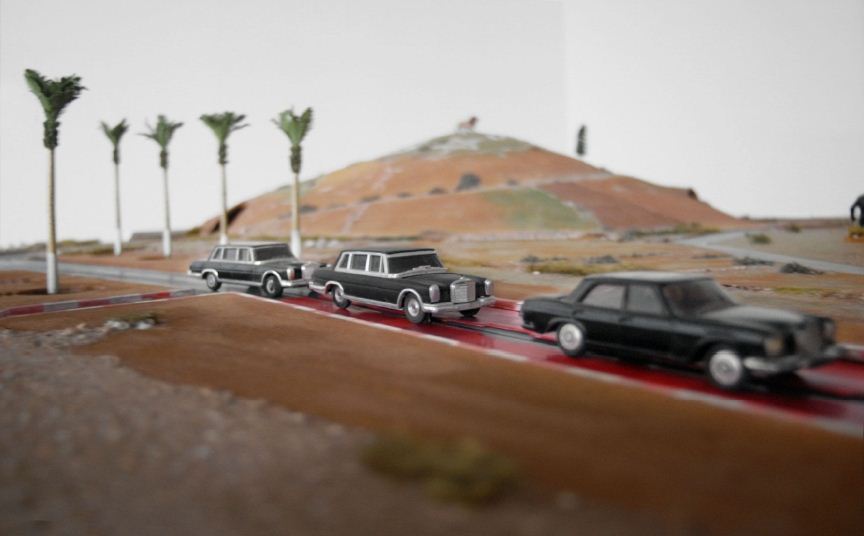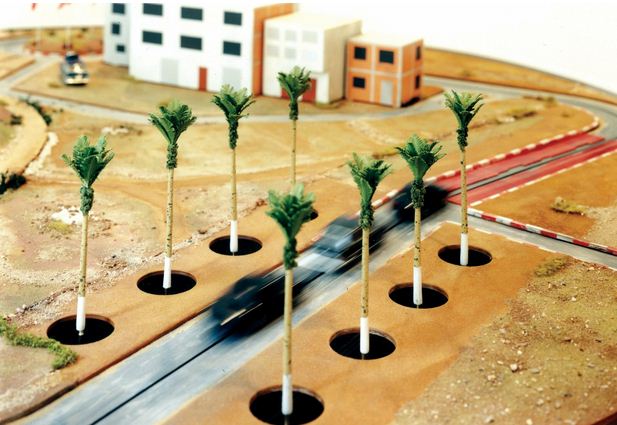
© Yto Barrada
Expositions du 24/5/12 au 14/7/2012 Terminé
Pace Gallery London First floor 6-10 Lexington Street W1F 0LB London Royaume-Uni
Pace Gallery London First floor 6-10 Lexington Street W1F 0LB London Royaume-Uni
Pace London is delighted to announce an exhibition of work by Moroccan artist Yto Barrada, on view at 6-10 Lexington Street from May 24 through July 14, 2012. This exhibition marks the first time Barrada’s work has been presented in a commercial UK gallery and many of the works on view have never before been presented in this country.
Yto Barrada lives and works in Tangier, and the city is a key source of inspiration and subject matter for her work. The exhibition, entitled Mobilier Urbain, is an ensemble of sculptures and photographs which examines, among other themes, the relationship between unchecked urban development, the botanical landscape, and the subtle forms of resistance that humans, and plant, attempt against the forces of monoculture.
The works on view in Mobilier Urbain span Barrada’s varied career. Gran Royal Turismo (2003) is a table-sized automated model of a rather bleak little city, preened for the arrival of a political dignitary. When a convoy of black Mercedes emerges from a tunnel, palm trees push out of the ground, sidewalks and walls flip to reveal freshly painted surfaces, and flags blossom ahead of the convoy’s arrival route. The city has been transformed for the eyes of the officials in those cars. A recurring motif in Barrada’s work is the tree, notably the palm tree, both a coopted icon of exoticism and a pawn to be played in the game of urban planning. A new work entitled Twin Palm Island (2011) places two palm tree-shaped signs onto children’s wagons.

© Yto Barrada
The work raises questions about the ranks of palm trees, transplanted from the warm south, which line Tangier’s avenues. Also called to account is the maturity of the officials who place them there. Photographs from the series Autocar show details of the company logos painted on the sides of buses in the Port of Tangier.
It is of particular resonance to Barrada that the photos do not give away their stories, but simply allude to them: the illiterate children who read the destinations by these icons and smuggle themselves into the undercarriages and wheels wells of the buses, in the hope of escaping to the European destinations the icons represent. Telephone Books records another kind of coded language, the drawings and tally marks which the artists’ grandmother used to record family telephone numbers, as she could not read or write.
Vignette : © Yto Barrada

